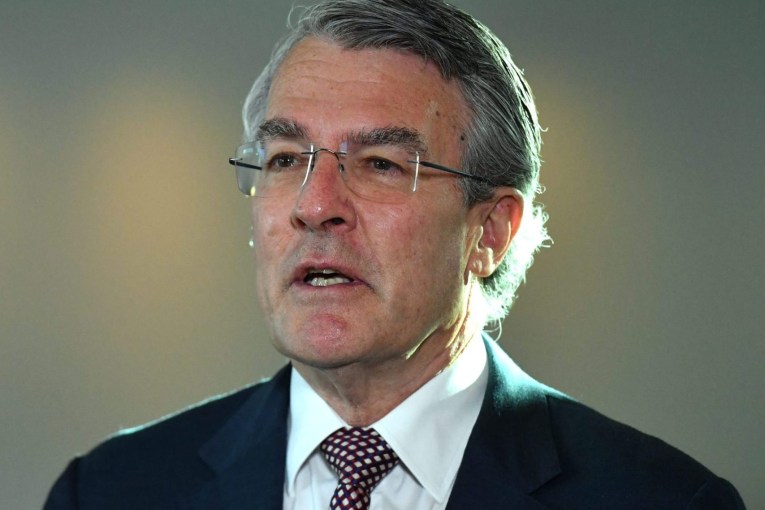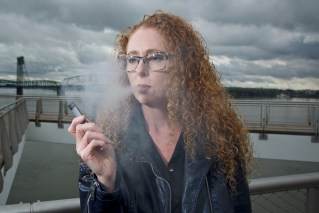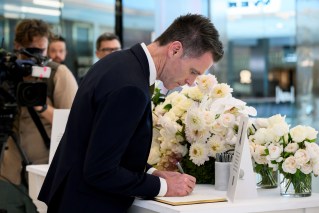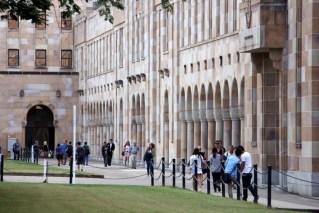How health catastrophe is making better neighbourhoods
The coronavirus pandemic is changing the places where we live. Where once neighbours did not know each other’s names, they are now forming bonds over “driveway drinks”, having conversations over the fence and ensuring those around them are OK.
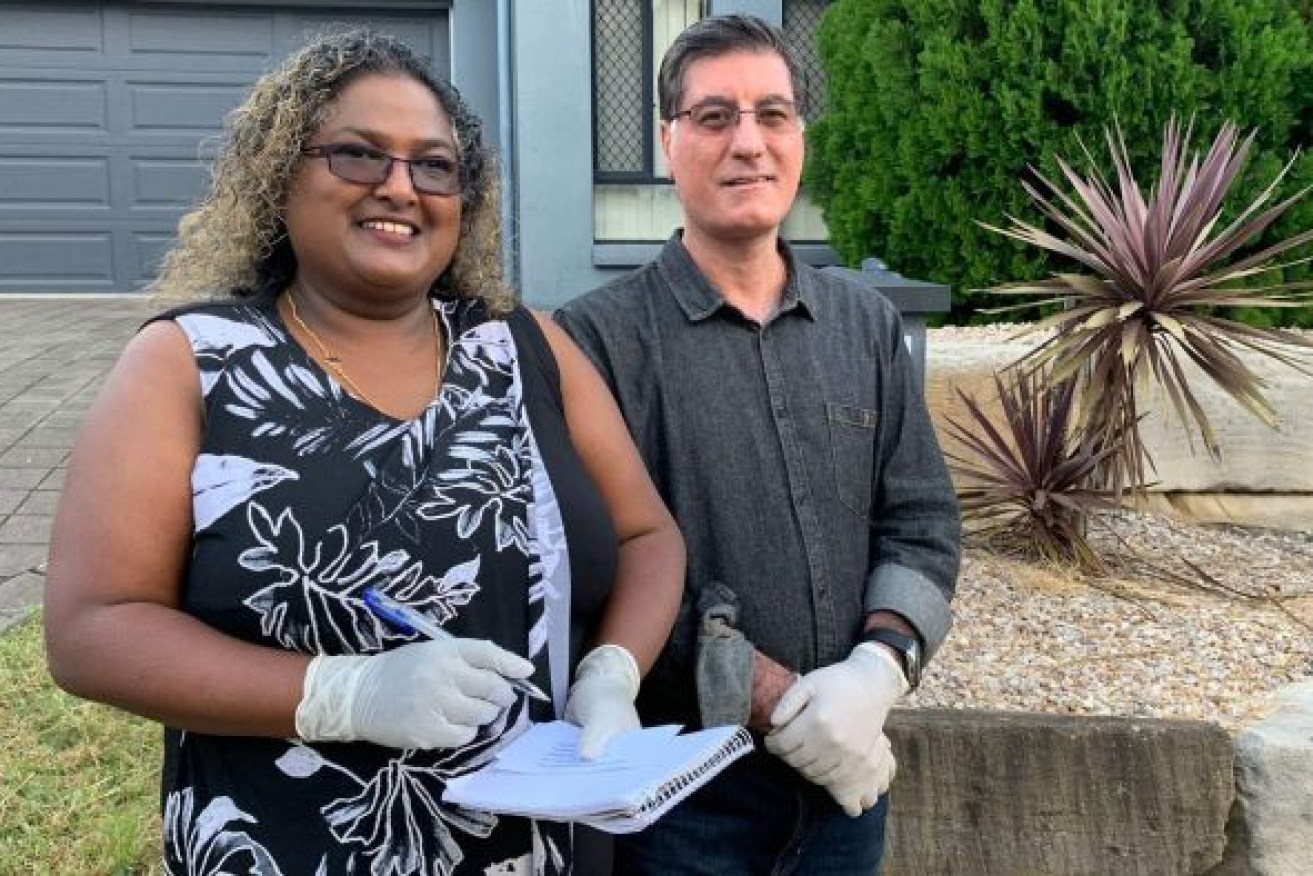
Vicky and Siamak Mohajerin did not know a lot of their neighbours before they offered to help them. Photo: ABC
Ipswich couple Vicky and Siamak Mohajerin have lived in their family home, west of Brisbane, for 12 years.
Like many busy Australians, they had only ever exchanged the odd wave or nod to their neighbour out the back — mother-of-six Teressa Leedie — until the coronavirus pandemic began to spread.
“We were at home self-isolating and we realised we don’t know a lot of our neighbours,” Ms Mohajerin said.
“We thought they might be in need, so we put gloves on, got a pen and pad, and took a walk on Sunday afternoon, and gave our neighbours our contact details.
“[We] just told them if they need anything at all, or needed us to go get something for them, we would go do that.”
Mr Mohajerin said the couple had “never met or spoken to Teressa”.
“We got a really nice response,” he said.
Ms Leedie said it was “really uncommon for people to reach out this way”.
“Usually people stick to themselves,” Ms Leedie said. “It was really overwhelming and heartwarming to know you’ve got neighbours, strangers, in your street who are willing to support us in this time of need.”
‘Great cause for optimism’
Popping next door to borrow a cup of sugar is not common these days. In fact, research shows less than half of Australians actually know their neighbour by name.
Relationships Australia national executive officer Nick Tebbey said coronavirus was changing that, with the pandemic prompting neighbours to reach out to one another for support as social-distancing measures increased.
“It’s part of the Australian psyche and we see it in times of crisis like the bushfires and the droughts,” Mr Tebbey said.
“Neighbours and communities want to make sure the most vulnerable people are looked after.
“The difference now is we’re all vulnerable with this pandemic. I think there’s great cause for optimism to see all these amazing stories of neighbours doing things that are really about building connections with those around them.
“Every day we’re seeing examples of that all over the country.”
Mr Tebbey said “online neighbourhoods” were also expanding in response to the virus, connecting those in distant suburbs, interstate or even overseas.
“We’re seeing a huge uptake of people setting up WhatsApp and Facebook chats to communicate with their immediate neighbours,” he said.
“Technology is the great connector we need right now.”
Neighbours connect through ‘driveway drinks’
Andrea Volling and her partner Alan Znojemsky, who live in a suburban street in Ipswich, recently joined the growing number of people hosting “driveway drinks”.
“Sunday afternoon is part of our routine — we go down the pub and have a beer — and since we can’t do that anymore, we thought ‘well, we may as well do it in our driveway’,” Mr Znojemsky said.
Ms Volling said she knew there were people out there who were not getting out.
“If we can get a couple of people here and there, you’ve done well,” Ms Volling said.
“We’re not going to let this beat us.
“We’re Australian and that’s what we do in tough times — take care of our mates, neighbours, friends and family.”
Mum takes son on dinosaur walks to brighten street
Across Australia many people are also putting teddy bears in their yards and windows so children can go on a bear hunt through their neighbourhood.
However one Brisbane mother has chosen a different animal to bring positivity to her neighbourhood.
Lou Bromley and her four-year-old son Angus Love have been dressing as dinosaurs on their daily walks in Oxley, in Brisbane’s west, brightening the days of nearby children who are studying at home.
“We were going a little stir crazy working from home and being homeschooled,” Ms Bromley said.
“A lot of friends are also homeschooling in our neighbourhood so we thought we’d put some smiles on people’s faces.
“We get lots of smiles — from parents as well as kids.”
Mr Mohajerin recommended other people to reach out to others — whether online or over the fence — saying it had given him and Ms Mohajerin something to look forward to.
“I’m so glad we did it,” he said.
“One household suggested we have a street party when this is all over, so we can’t wait — it’s going to be huge.”
– ABC / Anna Hartley
